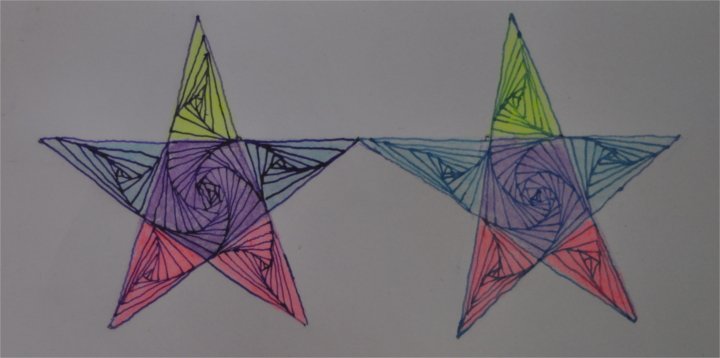I filled out two pentagrams using the paradox drawing style. These are ink on wax pencil. I like the way that India ink sits on the wax. The problem is that, since the ink dries slowly, each time my pen intersects with a existing line, the semi dry ink pulls additional ink off the pen and creates a mess.
Anyway, the pentagrams were colored the same. I used a purple ink on the one on the left and the blue ink for the one on the right.
As for today's paradox, I thought I would mention the famous pre-Socratic thinker Epimenides of Crete. In about 600 BC, Epimenides stated authoritatively that all Cretans are liars.
Since Epimenides is from Crete we know, by definition, that he is lying. Since we know he is lying, he must be telling the truth. But if he was telling the truth, then he is lying.
The statement that Cretans speak only truth is as paradoxical as the claim they are all liars as the statement is depending on a self reference.
For example, imagine that a visitor to Crete holds that view that Cretans speak only truth. While visiting Crete, a native of the island says the island has herds of unicorns and unicorns poop marshmallows. The visitor to Crete must either take the statement about unicorns as fact or face the troubling possibility that the statement "Cretans speak only truth" is false.
The important part of this post is the date. Epimenides lived in 600 BC. People in Ancient world were clearly as puzzled by paradoxes in Ancient times as we are today.
More than one logician has built a career off of different interpretations of this paradox.
In a later post, I will discuss how one can use this paradox as a control mechanism.
